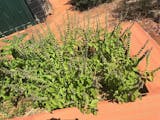Hallo lieber Benji 😊 Ich hoffe es geht Dir gut! Wollte Dir nur kurz schreiben, dass der Zitronen-Basilikum von Dir ganz toll ist 😍 Wünsche Dir ein schönes Wochenende 🌺
Selbst Ich, als Jemand der sich nie für Garten oder Selbstversorgung ausgekannt. Da fand ich Benjis.net und bin überrascht wie gut die Produkte und die Infos von Benjis wirklich sind. So das Ich erfolgreich mich dafür begeistern konnte meine Lebensmittel selbst anzupflanzen. Es ist zuverlässig qualitativ Hochwertig sowie das Fachwissen sowie der Service ist erste Klasse ! -
I’m very happy with all the seeds I’ve purchased at Benji’s. They all worked out very well and have grown into healthy and productive plants. I definitely will buy here again and highly recommend this shop!







